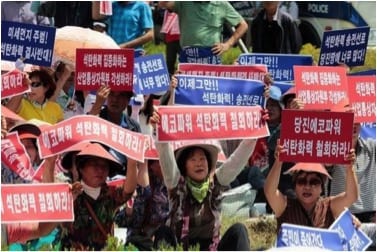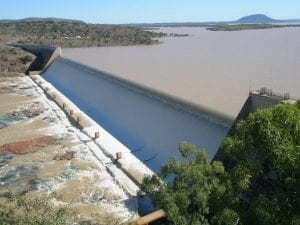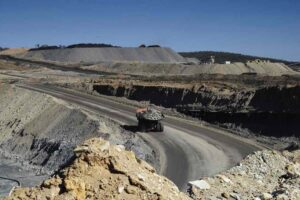A protest and one-week hunger strike has prompted the South Korean Government to indefinitely postpone consideration of the 1160 megawatt (MW) ‘Dangjin Eco Power’ coal-fired plant.
On July 19, about 900 people gathered in front of the Ministry of Trade, Industry and Energy’s office in the country’s administrative capital, Sejong, to protest against the proposed plant.
For the next week the Mayor of Dangjin, Hongjang Kim, and two leaders of a local citizens group went on a hunger strike in a bid to pressure the government into cancelling the plant, which was expected to be approved by July 28.
“As a citizen of South Korea I have a duty to leave a beautiful and clean environment to descendants and as a citizen of Dangjin I have a right to live happily in decent environment without discrimination. As a citizen I urged the government to take full responsibility to protect the people from the damage of the coal-fired power plant,” Kim stated in a media release. [Translation]
With the hunger strike drawing public attention and support from other political leaders – such as the Governor of Chungcheongnam-do province – the Ministry of Trade, Industry and Energy bowed to public pressure.
Finally, on the afternoon of July 26, the Ministry announced the proposed plant would be delayed indefinitely.
According to the Korea Federation for Environmental Movements, the participation of the Mayor of Dangjin in the hunger strike was a critical factor in the decision to defer the decision on the SK Group’s proposed plant.
The proposed two units would add to an existing coal power plant in Dangjin that is one of top 10 largest in the world, with a capacity of 6040 MW. The existing plant has been the subject of sustained criticism from local community members and the Mayor due to concerns over air and water pollution.

Will the South Korean coal plant boom wither?
At the end of 2015 SK Gas, a Korean gas company, gained a controlling stake in the joint venture company proposing the ‘Dangjin Eco Power’ plant. (Korea East-West Power has a 34 per cent stake in the project and Korea Development Bank the remaining 15 per cent share.)
SK Gas also bought into the joint venture which is proposing the 2080 MW Gosung Green Power plant. This project too is encountering community opposition.
SK Gas’s coal power plans are just one small part of the proposed coal boom in South Korea.
According to the Global Coal Plant Tracker South Korea has 11 units with a combined capacity of over 10,000 MW already under construction. In addition, the Ministry of Trade and Industry is pushing for the construction of another nine coal units, taking the total to 18,100 MW which are in the planning or construction stage.
If all these proposed units are built, within a few short years South Korea will rank amongst the top five of the world’s largest coal power polluters at a time when other countries are decisively opting to go coal-free.
Swimming against the tide by building more coal plants will also impose a growing health toll on its citizens.
Already the community groundswell over air pollution from coal plants has forced the government to make concessions. In early July the government announced 10 old coal units with a capacity of 3345 MW will be progressively closed and tougher pollution controls imposed on the remaining existing plants.
However, the 20 additional units backed by the Ministry of Trade and Industry are far from certain.
In December 2015 South Korea – along with other governments – adopted the Paris Agreement under the United Nations Framework Convention on Climate Change. One of the aims of the agreement is to reduce global annual emissions of greenhouse gases to a level which will keep the global average temperature to “well below” 2 °C above pre-industrial levels and pursue “efforts to limit the temperature increase to 1.5 °C above pre-industrial levels.”
South Korea pledged to reduce its greenhouse emissions by 37% by 2030 compared it its business-as-usual estimates.
However, building the proposed coal plants and extending the life of existing old plants will make honouring that commitment impossible.
Writing in the South Korean news site The Hankyoreh, Kim Jeong-su noted “this means that, somewhere down the line, South Korea may find itself forced by international approbation to hurriedly ‘call off the party’ and try to catch up to the coal-free campaign.”
The South Korean Government may already be getting the message.
In amongst a raft of changes to the tax code announced last week is an increased tax on low-grade coal aimed at discouraging the use of the most carbon-intensive coals. (South Korea is estimated to have imported (p. 50) a little over 102 million tonnes of thermal coal in 2015, most of which came from Indonesia and Australia.)
With the South Korean economy slowing and community opposition to coal plants growing, SK Gas may well have placed a big losing bet when it invested in two proposed coal plants.
Bob Burton is the Editor of CoalWire, a weekly bulletin on global coal industry developments. (You can sign up for it here.) His Twitter feed is here.









